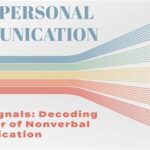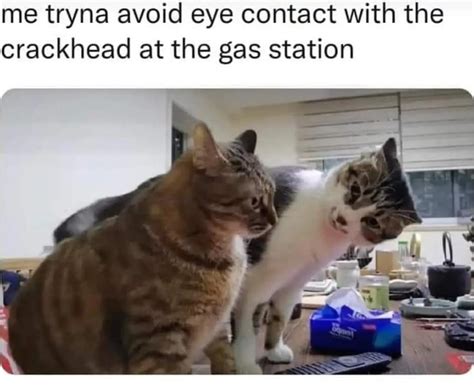
Subtle cues, often overlooked, can reveal when someone secretly dislikes you, ranging from minimal eye contact and terse responses to dismissive body language and a lack of genuine enthusiasm in conversations. Recognizing these signs can help individuals navigate social and professional relationships with greater awareness and potentially mitigate negative interactions.
Deciphering social dynamics often involves more than just listening to spoken words; it requires observing subtle nonverbal cues that can betray underlying feelings. While direct expressions of dislike are rare, people often unconsciously reveal their true sentiments through a range of behaviors. Experts emphasize that understanding these signs can be crucial in both personal and professional settings, allowing individuals to adjust their interactions and protect themselves from potential negativity.
One of the most telling signs of underlying dislike is a marked lack of eye contact. “Eye contact is a fundamental aspect of human connection,” explains body language expert Dr. Lillian Glass, author of “The Body Language Advantage.” “When someone avoids your gaze, it often indicates discomfort, disinterest, or even deception.” Consistently avoiding eye contact, especially during conversations, suggests a detachment or a deliberate attempt to create distance.
Short, clipped responses are another common indicator. When someone dislikes you, they are less likely to engage in lengthy or enthusiastic conversations. Their responses will often be terse and devoid of detail, signaling a desire to end the interaction as quickly as possible. This behavior contrasts sharply with how they might interact with someone they genuinely like, where responses are typically more elaborate and engaging.
Body language plays a significant role in revealing hidden feelings. Crossed arms, a turned-away posture, and a lack of mirroring (when people unconsciously mimic each other’s body language) can all suggest dislike or discomfort. “Body language is often more honest than words,” says communication specialist Jane Edwards. “People can consciously control what they say, but their body language is often a subconscious reflection of their true feelings.” For instance, someone who subtly turns their body away from you during a conversation may be subconsciously signaling their desire to disengage.
Genuine enthusiasm is a key component of positive interactions. When someone dislikes you, they are unlikely to show genuine interest in your ideas, accomplishments, or personal life. Their responses may be perfunctory or even dismissive, lacking the warmth and engagement that characterize positive relationships. “Enthusiasm is contagious,” notes psychologist Dr. Robert Feldman. “Its absence can be a clear sign that someone is not genuinely interested in connecting with you.”
In professional settings, subtle signs of dislike can manifest in various ways. Colleagues who secretly dislike you might exclude you from important meetings, ignore your contributions during discussions, or take credit for your ideas. These behaviors can be particularly damaging to your career, making it essential to recognize and address them proactively.
Exclusion from meetings or important communications is a common tactic used by individuals who harbor negative feelings. By deliberately omitting you from relevant discussions, they undermine your ability to contribute effectively and advance professionally. This behavior can be particularly insidious, as it often occurs behind the scenes and can be difficult to prove.
Ignoring your contributions during meetings is another sign of underlying dislike. When your ideas are consistently dismissed or overlooked, it suggests that your colleagues do not value your input. This behavior can be demoralizing and can create a hostile work environment.
Taking credit for your ideas is a particularly egregious form of professional sabotage. When someone steals your ideas and presents them as their own, it not only undermines your credibility but also damages your career prospects. This behavior is often motivated by jealousy or a desire to undermine your success.
Gossip and negative comments are other common signs of dislike. While direct confrontation is rare, people who harbor negative feelings often resort to spreading rumors or making disparaging remarks behind your back. These behaviors can damage your reputation and create a toxic work environment.
Defensiveness and negativity are also telltale signs. Someone who dislikes you might be quick to find fault with your actions or criticize your ideas. They may also be overly defensive in their interactions with you, suggesting that they are constantly on guard and mistrustful of your motives.
While recognizing these signs can be helpful, it is important to avoid jumping to conclusions. Not every instance of minimal eye contact or a short response necessarily indicates dislike. Context is crucial, and it is important to consider other factors, such as cultural differences, personality traits, and situational circumstances.
Cultural differences can significantly influence communication styles. In some cultures, direct eye contact is considered rude or aggressive, while in others, it is seen as a sign of respect. Similarly, some individuals are naturally more reserved and less expressive than others. It is important to take these factors into account when interpreting nonverbal cues.
Personality traits can also play a role. Introverted individuals, for example, may be less outgoing and expressive than extroverted individuals. Their behavior should not necessarily be interpreted as a sign of dislike.
Situational circumstances can also influence behavior. Someone who is stressed, tired, or preoccupied may be less attentive or engaging than usual. It is important to consider these factors before concluding that someone dislikes you.
However, if you consistently observe several of these signs over an extended period, it is likely that the person does not hold you in high regard. In such cases, it is important to take steps to protect yourself and manage the relationship effectively.
One strategy is to minimize contact with the person. By reducing the frequency and duration of your interactions, you can limit the potential for negativity and conflict. This approach is particularly useful in professional settings where you may not have the option of completely avoiding the person.
Another strategy is to focus on your own behavior. By maintaining a positive attitude, being professional and respectful, and avoiding gossip or negativity, you can minimize the likelihood of escalating the situation. It is important to remember that you cannot control other people’s behavior, but you can control your own.
Setting boundaries is also crucial. By clearly defining your limits and communicating them assertively, you can protect yourself from being taken advantage of or subjected to mistreatment. This approach is particularly important in situations where the person is engaging in disrespectful or inappropriate behavior.
Seeking support from trusted friends, family members, or colleagues can also be helpful. Talking about your experiences and seeking advice from others can provide valuable perspective and emotional support. It is important to remember that you are not alone and that there are people who care about you and want to help.
In some cases, it may be necessary to address the issue directly. If the person’s behavior is causing significant harm or creating a hostile environment, it may be appropriate to have a frank and honest conversation with them. However, this approach should be used with caution, as it can sometimes escalate the situation. It is important to carefully consider the potential risks and benefits before deciding to confront the person directly.
If you decide to confront the person, it is important to do so in a calm and respectful manner. Avoid making accusations or using inflammatory language. Instead, focus on expressing your feelings and explaining how their behavior is affecting you. “Use ‘I’ statements to express your feelings,” advises communication coach Sarah Peterson. “For example, say ‘I feel disrespected when my ideas are ignored’ rather than ‘You always ignore my ideas.'”
It is also important to be prepared for the possibility that the person may deny or downplay their behavior. They may even become defensive or hostile. In such cases, it is important to remain calm and assertive, and to reiterate your boundaries. If the person is unwilling to acknowledge the problem or change their behavior, it may be necessary to disengage and seek help from a supervisor or HR representative.
In conclusion, recognizing the subtle signs that someone secretly dislikes you can be a valuable tool for navigating social and professional relationships. By understanding these cues, you can adjust your interactions, protect yourself from negativity, and create a more positive and supportive environment for yourself. While it is important to avoid jumping to conclusions and to consider other factors, such as cultural differences and personality traits, consistently observing several of these signs over an extended period is a strong indication that the person does not hold you in high regard. In such cases, it is important to take steps to protect yourself and manage the relationship effectively. This might include minimizing contact, focusing on your own behavior, setting boundaries, seeking support, or, in some cases, addressing the issue directly. By taking proactive steps to manage these relationships, you can protect your well-being and create a more positive and fulfilling life for yourself. Recognizing these subtle cues enhances your emotional intelligence and allows for more meaningful and authentic interactions.
Frequently Asked Questions (FAQ)
1. What are some common signs that someone secretly dislikes you?
Common signs include minimal eye contact, short and clipped responses, negative body language (such as crossed arms or turning away), a lack of genuine enthusiasm in conversations, exclusion from meetings or important communications, ignoring your contributions, taking credit for your ideas, gossip and negative comments, and defensiveness or negativity. As mentioned in the article, “Eye contact is a fundamental aspect of human connection. When someone avoids your gaze, it often indicates discomfort, disinterest, or even deception.”
2. How reliable are these signs? Could they be due to other factors?
While these signs can be indicative of dislike, it’s crucial to consider other factors such as cultural differences, personality traits, and situational circumstances. For example, in some cultures, direct eye contact may be considered rude. Similarly, introverted individuals may naturally be less expressive. If you consistently observe several of these signs over an extended period, it’s more likely that the person does not hold you in high regard. Context is key in interpreting these cues accurately.
3. What should you do if you notice these signs from a colleague at work?
If you notice these signs from a colleague, start by minimizing contact and focusing on your own behavior to maintain a professional and respectful attitude. Set clear boundaries and document any instances of disrespectful or inappropriate behavior. Seek support from trusted colleagues, supervisors, or HR representatives if the behavior is creating a hostile work environment. In some cases, it may be necessary to address the issue directly, but do so calmly and respectfully, focusing on how their behavior affects you. Remember communication coach Sarah Peterson’s advice: “Use ‘I’ statements to express your feelings. For example, say ‘I feel disrespected when my ideas are ignored’ rather than ‘You always ignore my ideas.'”
4. Is it always best to confront someone who seems to dislike you?
No, it is not always best to confront someone. Confrontation can sometimes escalate the situation. It’s important to carefully consider the potential risks and benefits before deciding to confront the person directly. If the person’s behavior is causing significant harm or creating a hostile environment, it may be appropriate to have a frank and honest conversation. However, if the behavior is minor or if you feel unsafe, it may be better to minimize contact and seek support from others.
5. How can you protect yourself from the negative impact of someone disliking you?
You can protect yourself by minimizing contact with the person, focusing on your own behavior, setting boundaries, seeking support from trusted friends, family members, or colleagues, and documenting any instances of disrespectful or inappropriate behavior. Maintain a positive attitude and avoid engaging in gossip or negativity. Remember that you cannot control other people’s behavior, but you can control your own responses and actions. Building a strong support network can also help mitigate the emotional impact of dealing with someone who dislikes you. Additionally, improving your emotional intelligence can provide a deeper understanding of social interactions, leading to more meaningful relationships.
In-depth analysis and expanded context
The original article from Yahoo! Lifestyle serves as a crucial guide for navigating the complex social landscapes of personal and professional life. Understanding the subtleties of human interaction is often more important than overt communication. The information provided helps individuals to become more attuned to nonverbal cues that can betray underlying feelings, thereby enhancing their emotional intelligence and overall social awareness. This is not just about detecting negativity, but about developing a better understanding of human behavior, which can lead to more meaningful and authentic relationships.
The article highlights several key indicators that someone might secretly dislike you, and it is essential to delve deeper into each of these points to understand their significance.
1. Minimal Eye Contact: Eye contact is fundamental in human connection. It is the way we show interest, build trust, and establish rapport. When someone consistently avoids eye contact, it often signals discomfort, disinterest, or deception. From an evolutionary perspective, avoiding eye contact can be a subconscious way of reducing potential conflict. In modern society, it can indicate a desire to disengage from the interaction.
Expanded Context: Different cultures have varying norms regarding eye contact. In some Asian cultures, prolonged eye contact can be seen as disrespectful or aggressive. However, in Western cultures, it’s generally viewed as a sign of sincerity and engagement. Understanding these cultural nuances is vital to avoid misinterpretations. Furthermore, conditions like social anxiety can also cause individuals to avoid eye contact. Therefore, it’s essential to consider the individual’s background and circumstances before drawing conclusions.
2. Short, Clipped Responses: Communication is a two-way street, and the quality of interaction depends on the level of engagement from both parties. When someone dislikes you, they are less likely to invest in the conversation. Their responses will be terse, lacking detail or enthusiasm. This behavior contrasts sharply with how they interact with people they genuinely like, where responses are typically more elaborate and engaging.
Expanded Context: Short, clipped responses can also stem from other factors, such as time constraints or a person’s communication style. Some individuals are naturally more succinct in their speech. However, if these responses are consistently directed towards you, and combined with other signs, it may indicate dislike. Additionally, the context of the conversation matters. If the topic is sensitive or uncomfortable, a person may naturally give shorter responses.
3. Negative Body Language: Body language speaks volumes, often revealing more than words can express. Crossed arms, a turned-away posture, and a lack of mirroring are all indicative of discomfort or dislike. Our bodies unconsciously reflect our feelings, making body language a powerful tool for understanding unspoken emotions.
Expanded Context: Body language interpretation requires a holistic approach. A single gesture, like crossed arms, can have multiple meanings. It could signify defensiveness, discomfort, or simply a comfortable posture. However, a cluster of negative body language signals is more telling. For instance, if someone avoids eye contact, gives short responses, and turns their body away from you, it’s a stronger indicator of dislike.
4. Lack of Enthusiasm: Enthusiasm is contagious and is a key component of positive interactions. When someone dislikes you, they are unlikely to show genuine interest in your ideas, accomplishments, or personal life. Their responses may be perfunctory or dismissive, lacking warmth and engagement.
Expanded Context: Lack of enthusiasm can also be a symptom of burnout or disengagement. In a professional setting, a colleague may be unenthusiastic due to job dissatisfaction rather than personal dislike. Therefore, it’s important to assess the overall work environment and the individual’s general demeanor before concluding that their lack of enthusiasm is directed specifically at you.
5. Exclusion from Meetings or Communications: In professional settings, exclusion from important meetings or communications is a common tactic used by individuals who harbor negative feelings. By deliberately omitting you from relevant discussions, they undermine your ability to contribute effectively and advance professionally.
Expanded Context: Exclusion can be a form of passive-aggressive behavior aimed at isolating you and reducing your influence. It’s crucial to document these instances and address them appropriately. If you are consistently excluded from meetings that you should be attending, it’s important to discuss this with your supervisor or HR representative.
6. Ignoring Contributions: When your ideas are consistently dismissed or overlooked, it suggests that your colleagues do not value your input. This behavior can be demoralizing and can create a hostile work environment.
Expanded Context: Ignoring contributions can be a form of workplace bullying or discrimination. It’s important to stand your ground and assert your ideas, even if they are initially dismissed. Documenting instances of ignored contributions can be helpful if you need to escalate the issue to HR.
7. Taking Credit for Ideas: Taking credit for your ideas is a particularly egregious form of professional sabotage. This behavior is often motivated by jealousy or a desire to undermine your success.
Expanded Context: Protecting your intellectual property is crucial in the workplace. Document your ideas and share them with trusted colleagues to establish your ownership. If someone takes credit for your ideas, confront them directly and assert your claim. If necessary, involve your supervisor or HR representative.
8. Gossip and Negative Comments: While direct confrontation is rare, people who harbor negative feelings often resort to spreading rumors or making disparaging remarks behind your back. These behaviors can damage your reputation and create a toxic work environment.
Expanded Context: Gossip and negative comments are a form of social sabotage. It’s important to avoid engaging in gossip yourself and to confront those who spread rumors about you. Building a strong reputation based on professionalism and integrity can help to mitigate the impact of negative gossip.
9. Defensiveness and Negativity: Someone who dislikes you might be quick to find fault with your actions or criticize your ideas. They may also be overly defensive in their interactions with you, suggesting that they are constantly on guard and mistrustful of your motives.
Expanded Context: Defensiveness and negativity can be signs of underlying insecurity or resentment. It’s important to remain calm and professional when interacting with such individuals. Avoid getting drawn into arguments or engaging in negative behavior yourself. Focus on maintaining a positive attitude and setting clear boundaries.
In navigating these complex social dynamics, it is essential to remember the importance of self-awareness and emotional intelligence. Understanding your own feelings and behaviors is the first step in effectively managing relationships. Recognizing the signs that someone dislikes you is not about becoming paranoid or distrustful, but about being more attuned to the nuances of human interaction. This awareness allows you to make informed decisions about how to engage with others, protect yourself from negativity, and foster more meaningful and authentic relationships. It is about developing a more nuanced understanding of human behavior, which can lead to more meaningful and authentic relationships.









